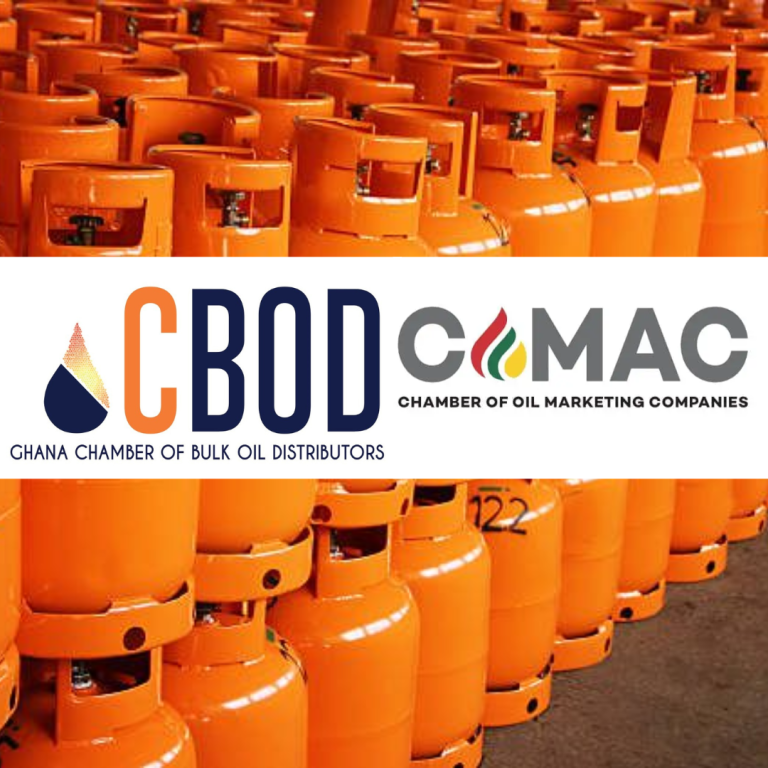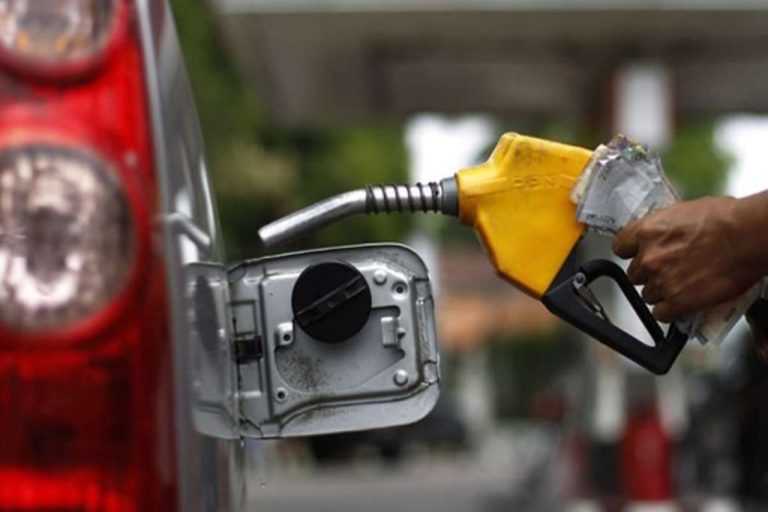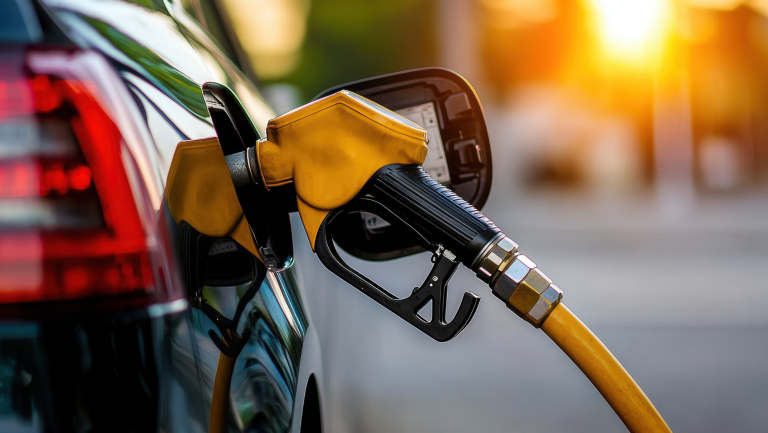The Chamber of Petroleum Consumers (COPEC) want reduction in the price of liquefied petroleum gas (LPG) as supplied to the market from Atuabo by Ghana Gas Company.
Questioning why gas from Atuabo was high, the Executive Secretary of COPEC, Mr Ducan Amoah, said in a release copied to GraphicBusinessOnline that “It is an undeniable fact, that, Atuabo gas supplied to the market consistently over the past few months has been more expensive than that of the imported ones from Tema even though Ghana gas claims to produce at relatively lower prices to its off-takers.
Making a case to justify his call, Mr Amoah said Atuabo LPG is known to be produced from what he described as “a rich and sweet feedstock, which in standard practice should be easier to process as compared to sour feedstock from elsewhere, giving it a relatively competitive advantage.”
He alleged that Atuabo does not charge any premiums on the benchmark Free On Board FOB as forcefully reiterated by the head of communications of Ghana gas.
As a result, he said “it stands to reason as COPEC had earlier indicated that the production cost should be much lower at Atuabo and by inference market price also, but the reverse seems the case currently due to a certain bad offtaker agreement previously signed and we need an immediate review to ensure Ghanaian LPG consumers do not continue to pay higher for locally produced gas whiles the imported one rather sells cheaper.”
As a matter of emphasis, Mr Amoah said COPEC maintains that the LPG from Atuabo should cost far less than the imported ones taking into consideration all ancillary costs associated with imported gas and to further serve as a critical benchmark in bringing down prices of LPG on the local market.
“We at COPEC hereby maintain that, Atuabo Gas Company should be concerned about producing higher internationally accepted standard LPG, which should cost far less on the Ghanaian market with the view to increasing the current LPG penetration figures such that more and more Ghanaians will find it affordable in place of charcoal and firewood”, he said. READ FULL PRESS RELEASE BELOW
PRESS RELEASE
CUT THE EXCUSES AND INSULTS.
CHECK THE PRESSURE, QUALITY AND GAS PRICES COMING FROM GHANA GAS-ATUABO.
The raging discussions on issues of price efficiency and quality parameters of liquefied petroleum gas ( LPG ) supplied to the market from Atuabo, the local gas processor and a subsequent attempt at rationalizing same from Ghana gas leaves a lot more worries and concerns than the answers the head of communications of Ghana gas sought to provide a few days ago.
A press statement signed by the Head of Corporate Communications of Ghana National Gas Company Limited with reference to the above subject matter as dated 22/05/2020 has left much to be desired.
In the said press statement, contrary to the expectations of many Ghanaians for Ghana Gas to address the pertinent issues raised earlier about pricing and quality issues, Ghana gas only attempted to denigrate COPEC as having presented a misleading and a mischievous agenda though in parts of same release and subsequent commentary on the subject matter there was a clear and tacit admission of a probable bad off-taker agreement between Ghana Gas and quantum/sage petroleum which overall causes gas from Atuabo to end up way higher on the local market than imported gas though Ghana gas insists it is putting out there relatively cheaper gas.
Further, one would have thought the head of Corporate Communications of Ghana Gas would use the opportunity to address the issues and to help both the LPG industry and Ghanaians find a lasting solution to the critical issues but Ghana Gas clearly deviated from the critical issues and dwelt on extremely tangential matters that are completely unrelated to the core issues raised earlier.
We hereby forthwith put on record the following for the avoidance of any doubt.
We also put on record the following concerning some assertions made by Ghana gas by its communications manager, Mr. Ernest Kofi Owusu- Bempah Bonsu of Ghana Gas as follows:
1. Quality parameters and Standard of liquefied Petroleum Gas (LPG) supplied by Atuabo Gas Company.
Our initial checks with the LPG Marketing companies indicate that the gas loaded from Atuabo largely has a Propane Butane ratio of 70:30, which means gas from atuabo is usually 70% propane and 30% butane.
By industry standard, domestic LPG should be rather, 30% Propane and 70% Butane with changes in percentages dependent on its intended usage and the prevailing ambient temperature conditions.
Knowing that Propane has a higher calorific value whiles butane does not burn well at low temperatures.
In very cold weather conditions, the boiling point of the gas is lowered by increasing the proportion of Propane so that the gas easily vapourizes to aid combustion.
Whereas, in temperate areas with hot and humid climatic conditions like that in Ghana, Butane is made higher as per the usual industry standard so that the LPG does not vapourise readily.
The propane-butane ratio is a critical safety and economic consideration and must be kept at all times within acceptable international standards, where butane always takes the higher percentage.
In areas where the petrochemical industry is robust, and weather conditions are favourable such as ours, Propane traces in domestic LPG is unacceptable at 60-70% when international standards require between 20-25 % for hotter climatic conditions.
From the complaints from consumers of LPG produced from Atuabo, we maintain that the Propane level in Atuabo LPG is unnecessarily higher than expected and this has been partly blamed for some of the rampant fires the country has seen over the past years including domestic and retail outlet fires as adduced to by the lpg marketers on public record.
It is our value proposition that Atuabo checks these parameters going forward and also publish the P-B ratio of the gas it pumps onto the local market and where found to be higher in propane as our initial checks point to, causes a massive public education on the need to acquire storage bottles that are produced and specified as propane bottles together with the necessary cables to avert the rampant leakages due to the high pressures associated with the gas from atuabo.
Further, beyond the calling on Atuabo Gas Company to declare the ratio of Propane to Butane in the LPG produced we also demand an independent public testing to be conducted on random samples picked from some retail outlets at some accredited laboratories in order to put to rest the quality/standard issues and the observed high pressures from gas supplied by Atuaboa.
2. Cost of LPG supplied by Atuabo Gas Company
It is an undeniable fact, that, Atuabo gas to the market consistently over the past few months has been more expensive than that of the imported ones from Tema even though Ghana gas claims to produce at relatively lower prices to its off-takers, and the question again is, why?
Atuabo LPG is known to be produced from a rich and sweet feedstock, which in standard practice should be easier to process as compared to sour feedstock from elsewhere, giving it a relatively competitive advantage.
Bearing also in mind that, Atuabo do not charge any premiums on the benchmark FOB as forcefully reiterated by the head of communications, it stands to reason as COPEC had earlier indicated that the production cost should be much lower at Atuabo and by inference market price also but the reverse seems the case currently due to a certain bad offtaker agreement previously signed and we need an immediate review to ensure Ghanaian LPG consumers do not continue to pay higher for locally produced gas whiles the imported one rather sells cheaper.
As a matter of emphasis, COPEC maintains that the LPG from Atuabo should cost far less than the imported ones taking into consideration all ancillary costs associated with imported gas and to further serve as a critical benchmark in bringing down prices of LPG on the local market.
To end, we at COPEC hereby maintain that, Atuabo Gas Company should be concerned about producing higher internationally accepted standard LPG, which should cost far less to the Ghanaian market with the view to increasing the current LPG penetration figures such that more and more Ghanaians will find it affordable in place of charcoal and firewood
Zonalisation of LPG Supply by Atuabo
The issue of zonalization policy in practice where LPG Marketing Companies (LPGMCs) in parts of Eastern, Central, Ashanti and Brong Ahafo region enclaves are mandated to be supplied with gas from Atuabo as part of the Government’s effort to ensure Ghana Gas sustain viability and to remain in production should not become a benchmark for inefficiencies that lead to milking the LPG downstream and the consumers who sometimes are forced to pay relatively higher for gas from atuabo.
This unique advantage Atuabo Gas is enjoying currently we believe should rather encourage them to work harder to meet the trust and confidence reposed in them in order to justify this obvious monopoly by supplying Ghanaians with safer, higher standard LPG that has the right Propane to Butane ratios and more competitive pricing as a way of promoting industrialization in Ghana.
Signed
Duncan Amoah
Executive Secretary
–GraphicBusiness





